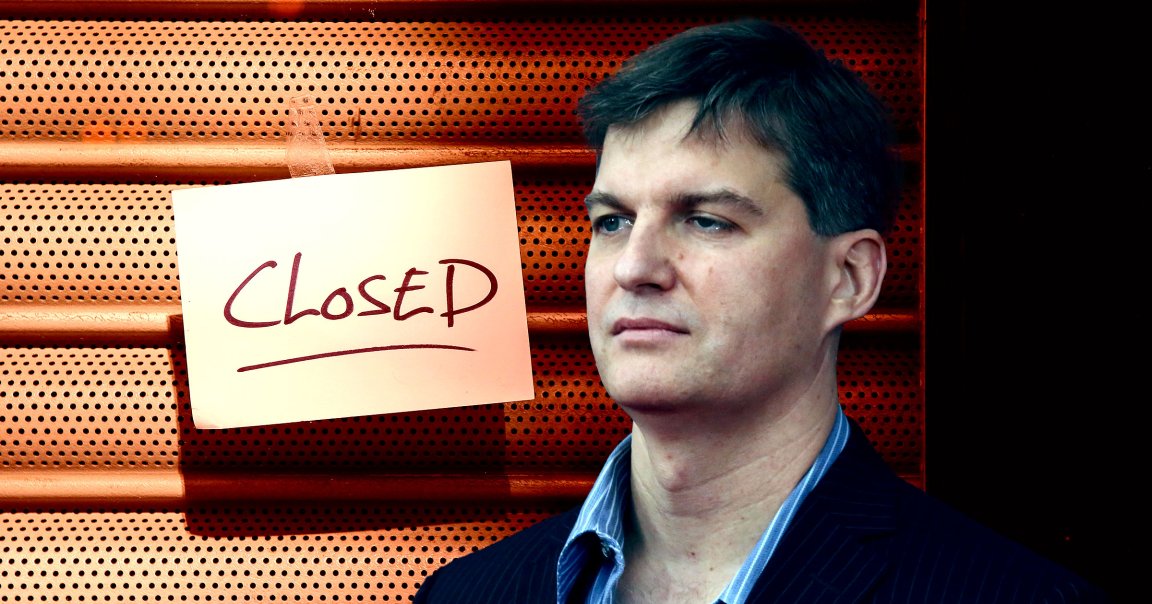
Earlier this month, news emerged that Michael Burry, who famously shorted the US housing market before its collapse in 2008, had placed bets worth over $1 billion against the share prices of AI chipmaker Nvidia and software company Palantir.
The reveal compounded existing concerns that the AI industry was growing into an enormous bubble that could take the US economy with it.
However, the famed asset manager’s story has taken several wild turns since then that have led to far more questions than answers. An October 27 letter Burry sent to investors, sent roughly a month after he made his short positions against Palantir and Nvidia, revealed that he would “liquidate the funds” of his hedge fund, Scion Asset Management, and “return capital” by “year’s end.”
The leak coincided with the news that the fund had terminated its registration with the US Securities and Exchange Commission database, leading to widespread rumors that Burry was taking a step back.
However, as Reuters points out, deregistering doesn’t necessarily mean the hedge fund is no more. Instead, Scion is no longer required to file reports with the regulator or any US state.
In his letter, though, Burry implied that his timing may have been off. After all, it’s been a rough ride for short sellers this year. Valuations of AI companies are continuing to soar, despite a not insignificant tech selloff earlier this month, eclipsing any standing revenues by a widening — and to many, alarming — margin. Nvidia is up over 37 percent, and Palantir is up 126 percent year to date, reaching a dizzying price-to-earnings ratio of over 200.
According to the Financial Times, Burry wouldn’t be the first short seller to fold. Other famous traders, including Jim Chanos and Nate Anderson, also closed up shop in light of still-growing AI hype.
“My estimation of value in securities is not now, and has not been for some time, in sync with the markets,” he wrote in the letter.
Compounding the confusion over Burry’s high-profile attempt to short the AI industry was his most recent claim that media outlets had vastly exaggerated the scale of his short positions. In a Wednesday tweet, Burry clarified that he had “spent $9,200,000, not $912,000,000,” in his bet against Palantir.
“Each of those doodads let me sell [Palantir] at $50 in 2027,” he added.
Now that his hedge fund has been liquidated, plenty of questions remain about Burry’s current position. In a cryptic announcement, Burry wrote in his tweet that he would be “on to much better things November 25,” without elaborating.
It’s difficult to get a firm grasp on Burry’s motivations. Was he looking to get out, admitting that it would simply take too long for the AI bubble to pop, making it a financially unsavvy move, as some have suggested on social media?
In a November 11 tweet, he posted a picture of actor Christian Bale, who played him in the 2015 movie “The Big Short,” about his exploit of the 2008 financial crisis, writing in the caption: “Me then, me now.”
“It worked out,” he added. “It will work out.”
Could Burry look to continue his quest to short the AI bubble on his own terms, allowing him to invest privately and forego the need to register with federal regulators?
“Don’t count him out, just expect him to operate off the grid for a while,” Erlen Capital Management Bruno Schneller told CNBC. “He may simply pivot to a family-office setup and run his own capital.”
More on AI: Dark Clouds Suddenly Gathering Over AI Industry